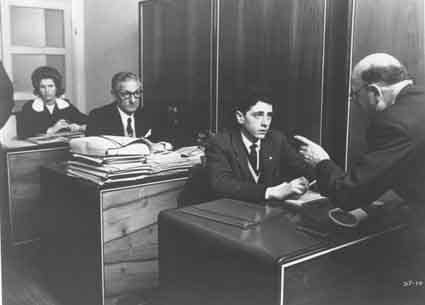 It was in 1988 that I first heard of global warming. Seeing that we had recently emerged from a cold spell, it came as something of a surprise. But I didn’t think much of it one way or another, as I had, by that time, learned to discount Big Media. Continue reading “A Third of A Century Into Global Warming”
It was in 1988 that I first heard of global warming. Seeing that we had recently emerged from a cold spell, it came as something of a surprise. But I didn’t think much of it one way or another, as I had, by that time, learned to discount Big Media. Continue reading “A Third of A Century Into Global Warming”
Social Media Hijacks The Subconscious Mind
 Anything that affects the subconscious minds of billions of people, on a daily basis, is a very serious thing, and that is precisely what has happened over the past decade, as social media captured a large percentage of human cognition.
Anything that affects the subconscious minds of billions of people, on a daily basis, is a very serious thing, and that is precisely what has happened over the past decade, as social media captured a large percentage of human cognition.
I am well aware that I am running against the stream. Mine, to be honest about it, is a small and largely unwanted voice. Still, someone needs to say these things, and the truth is that social media directly replaces natural subconscious functions. Or, perhaps more accurately, it displaces subconscious operations and acts in their place. And that is very, very dangerous. Continue reading “Social Media Hijacks The Subconscious Mind”
Suffering For Righteousness Marks You As Serious Person
 We used to talk about things that “separated the men from the boys.” And however poorly the phrase may have been used, it had a legitimate point: It’s one thing to be male, it’s quite another to be a proper man.
We used to talk about things that “separated the men from the boys.” And however poorly the phrase may have been used, it had a legitimate point: It’s one thing to be male, it’s quite another to be a proper man.
The same obviously applies to women, even if we lack equally colorful terms: It’s one thing to be female and quite another to be a proper woman.
But on whichever side of the biological divide you find yourself, it’s suffering for what you believe in that confirms you as legitimate, solid adult… as someone to be taken seriously. Continue reading “Suffering For Righteousness Marks You As Serious Person”
Podcast: The Futility And Disaster of The Magic Fix
Humanity is afflicted with a desire for a magic fix to its problems. And that desire, if it’s allowed to fester, soon enough becomes a demand for a magic fix for their problems… and particularly to problems they fixate upon. That much was obvious in the rise of Hitler, in the sale of socialism to the oppressed people of Eastern Europe, and in other disasters. But it goes even further, afflicting nearly the whole of mankind on a continuing basis.
Podcast: The Unmentionable Freedom
Back when Western civilization still had a foothold in the public square, people paid attention to the freedom of belief, the freedom to choose a career, and the freedom to speak one’s mind. All good and necessary things, of course, but there was one freedom that they dared not mention… dared not consider. And that’s the one I’ll cover today: Political freedom… the ability to choose how we will be governed, if we wish to be governed at all.
The Kinship of Producers
 There is a kinship between productive human beings; one that spreads all across this planet. It may be invisible to power and hierarchy, but we productive people recognize it. Continue reading “The Kinship of Producers”
There is a kinship between productive human beings; one that spreads all across this planet. It may be invisible to power and hierarchy, but we productive people recognize it. Continue reading “The Kinship of Producers”
You Are A Demi-God
 Yes, you. All reasonably healthy humans are demi-gods.
Yes, you. All reasonably healthy humans are demi-gods.
I apologize for hitting you with a concept that may feel foreign, dangerous and ridiculous, but it needs to be said. And regardless that we lack proper definitions for such concepts, it’s true.
I’ll also remind you that there’s nothing sacrilegious about saying this: David, the great Psalmist, was bolder than I, flatly stating, “You are gods.” He even used the Hebrew word elohim, the same word used in “God created the heaven and the earth.” And Jesus repeated the line without reservation. Continue reading “You Are A Demi-God”
If We Don’t Stand Up For The Unvaxxed Now, We Wouldn’t Have Stood Up For Jews In The 1930s
 (Originally published October 13, 2021.)
(Originally published October 13, 2021.)
I’m not telling you whether I’ve had the jab or not, because it doesn’t matter. What I am telling you is that a woman in Denver is about to die because the medical establishment won’t let her have a surgery, simply and only because she hasn’t had their shot. Bearing in mind that Denver hospitals have seen thousands of COVID patients over nearly two years, this isn’t defensible… it’s willfully causing a death. Continue reading “If We Don’t Stand Up For The Unvaxxed Now, We Wouldn’t Have Stood Up For Jews In The 1930s”
Rules Versus Righteousness
 Yes, we’ve experienced ridiculous and even malicious rules, but that’s not what I’m addressing in this post.
Yes, we’ve experienced ridiculous and even malicious rules, but that’s not what I’m addressing in this post.
Today my point is that rules by themselves – rules by their essence – are the opponents of righteousness. I know this strikes most people as absolutely wrong, but I’m convinced otherwise, and I’m asking you to hear me out. Continue reading “Rules Versus Righteousness”
Podcast: The Neutering of Our Passions And The Reclaiming of Our Passions
Passion, in our time, is badly misunderstood. And so I suppose I should start by saying that I’m not talking about the human sex drive, though the truth is that as you choke passion proper, sexual passion tends to be choked along with it. We express passion – real passion – when we make things sacred to ourselves; when we erect borders to protect things we care deeply about… when we say “This space is mine, and no one else is permitted unless I invite them in.”




